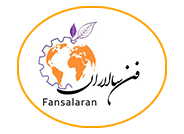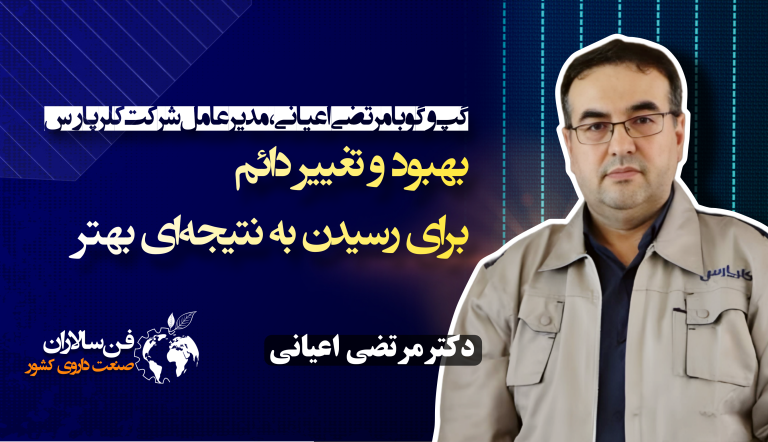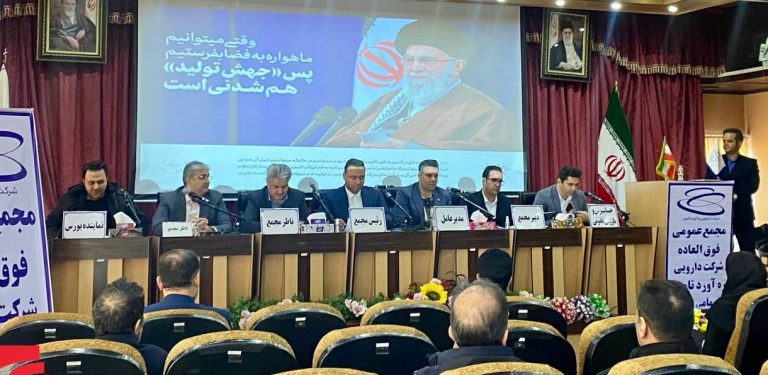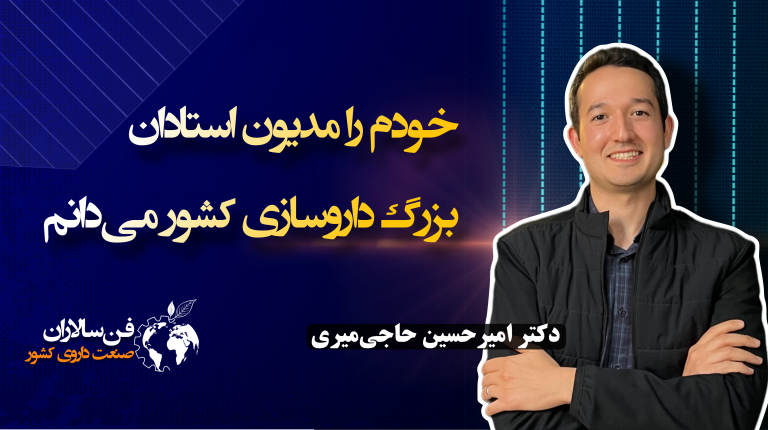Continuous Improvement for Better Outcomes
A conversation with Morteza Ayyani, CEO of ChlorPars Company
Note:
In recent months, ChlorPars Company has taken significant steps—especially in terms of system upgrades, green space development, and equipment overhauls. It has also experienced a notable growth of 15 trillion IRR in the capital market.
Here’s our conversation with Morteza Ayyani, CEO of ChlorPars (based in Tabriz), a subsidiary of TPPH (Tamin Pharmaceutical Investment Co.). (Questions have been omitted for brevity.)
Morteza Ayyani:
As you know, ChlorPars is a technically proficient company producing a wide range of products including perchlorine, ferric chloride, hydrogen peroxide, caustic soda, chlorinated paraffin, caustic potash, sodium hypochlorite, hydrogen, and more. Among these, hydrogen peroxide (industrial grade) and chlorinated paraffin are exclusive to ChlorPars and are produced only by us at a level comparable to international standards like EOP.
Over the past two months, we have successfully launched pilot-scale semi-industrial production of food-grade hydrogen peroxide, and we aim to integrate it into full-scale production within the next two months upon receiving the necessary permits.
The financial performance of ChlorPars has improved significantly over the past four months, with a valuation increase of 1,000 billion IRR, according to the Securities and Exchange Organization. This success is attributed to strategic decisions such as focusing on high value-added products and expanding exports. For example, from July to December this year, ChlorPars’ exports increased fourfold, bringing substantial foreign exchange earnings.
From an engineering perspective, there are two types of maintenance: Preventive Maintenance (PM) and Emergency Maintenance (EM). I can confidently say that PM had not been implemented at ChlorPars for the past eight years, leading to wear and damage to our equipment. For instance, routine services, rotary equipment evaluations, thickness and pressure resistance tests for storage tanks were neglected in previous years. Similarly, vibration analysis and thermal monitoring of mechanical systems had been overlooked.
Our first step was to establish a dedicated PM and EM Operations Division, signaling a serious shift toward maintaining the plant’s health and reliability.
I believe in the Kaizen strategy—the philosophy of continuous improvement—and we are committed to comprehensively overhauling our systems and equipment in the near future.
I have great confidence in the technical expertise of our engineers at ChlorPars. Most of the engineering work has been done in-house, with only minimal external consultancy. The high technical capability of our team has been at the core of our planning and execution.
ChlorPars uses membrane technology for chlor-alkali production, which is globally recognized as a green industry.
In this context, I can proudly say that ChlorPars is no longer considered a polluting industry—a success achieved through collaboration with the Department of Environment and the dedication of our staff. I also extend my appreciation to Shasta and TPPH management for their support, guidance, and efforts in creating synergy.
We currently recycle process wastewater within the company and prevent any discharge into surrounding lands. In honor of Clean Air Week, and with the support of the East Azerbaijan Department of Environment, we plan to unveil our new RO wastewater treatment system. This system will reclaim over 60% of ChlorPars’ wastewater as usable water for agricultural purposes. We have already reduced groundwater extraction by over 70%, and this will further improve with the RO system’s launch.
The approval of Articles 11 and 13 of the “Production Leap Law” in the Iranian Parliament was a major milestone. It allows manufacturing companies to enter agreements with universities and knowledge-based firms, and benefit from tax reimbursements equal to the project costs for equipment and machinery, provided research and development is conducted collaboratively.
I take pride in the fact that ChlorPars is the first industrial unit in the province to sign contracts with three accredited universities in the country, making full use of local technical resources. We intend to expand these efforts by forming more partnerships with knowledge-based companies in the province—provided their expertise aligns with the operational needs of ChlorPars.






